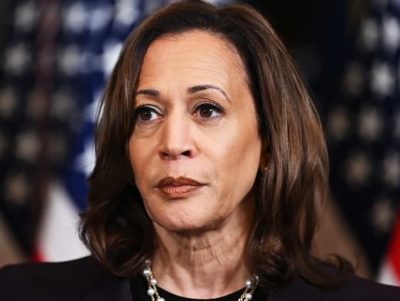Following Barack Obama’s historic 2008 victory, Democrats felt confident in a new “coalition of the ascendant.” America’s shifting demographics, with increasing numbers of college-educated professionals, young people, black Americans, Latinos, and other minorities, seemed to promise a long-term Democratic dominance. This coalition, diverse in background but unified by support for a strong social safety net and progressive cultural policies, represented what strategists called the inevitable “destiny” of a liberal America.
However, cracks began appearing as early as 2010 when Democrats lost ground among non-college-educated voters, a trend that only worsened in 2016 when Donald Trump attracted a significant portion of these voters. While President Joe Biden managed to reclaim some of these voters in 2020, Trump’s recent 2024 victory demonstrated the fragility of the so-called coalition, as he made inroads among young voters, black Americans, and Latinos – all key groups Democrats had relied upon to maintain power.
Immigration and Identity Politics: Key Issues That Shifted the Voter Base
Trump’s hard-line stance on immigration, including promises of border enforcement and mass deportations, resonated with a significant number of voters, especially as illegal border crossings reached record levels under the Biden administration. His approach starkly contrasted with Democrats’ hesitation on these issues, as they feared alienating immigrant rights activists and liberal supporters. Many voters, particularly in states like Florida and Texas, where Latino populations are significant, saw Trump as more aligned with their values on immigration.
Polling shows that immigration was a pivotal issue this election, with Trump winning 46% of the Latino vote and securing victories in heavily Latino counties like Miami-Dade in Florida and Starr County in Texas. Critics argue that Democrats underestimated the diversity of views within non-white communities, assuming a uniform stance on identity politics. This disconnect, as political analyst Mike Madrid observed, was central to the Democrats’ missteps, as Latino and other minority communities may not always view themselves through the same racialized lens the Democrats used.
Economic Anxiety and Cultural Fractures: Wedge Issues Exploited by Republicans
Economic concerns were at the forefront for many voters, as inflation, job security, and housing costs weighed heavily. Trump’s message, which prioritized economic stability and “America First” policies, resonated across racial lines, highlighting a common frustration with what many viewed as Democrats’ over-emphasis on identity politics. Trump’s campaign ads focused on cultural issues, criticizing Democrats’ support for transgender rights and social justice reforms. One of his ads, contrasting Kamala Harris’ progressive positions with his own, read: “Kamala is for they/them. President Trump is for you.”
Democratic infighting has since intensified, with moderate voices urging a shift away from progressive stances on social issues that seem divisive. They argue that positions like re-allocating law enforcement funds and expanding protections for transgender Americans alienated blue-collar and rural voters. While progressive leaders maintain these issues are core Democratic values, the debate underscores a growing rift in the party over the right approach to win back its lost coalition.
A Sobering Path Forward: Democrats Confront the Loss and Plan Next Steps
Following the election, Democrats are engaged in intense self-reflection to understand how they lost the White House, Senate, and potentially the House. Some believe that the Democrats’ focus on progressive ideals alienated working-class voters who prioritize economic issues over cultural ones. Figures like Congressman Seth Moulton argue that Democrats must be more candid about issues impacting everyday Americans, even if it means risking some progressive support.
Meanwhile, progressive Democrats, like Congressman John Moran, argue that the party should remain steadfast in advocating for minority rights, criticizing the suggestion that their policies are to blame for the loss. For many, this election loss marks a stark reminder that winning back lost ground may require a significant shift in messaging, one that balances progressive ideals with the economic concerns of working- and middle-class Americans.














